Then
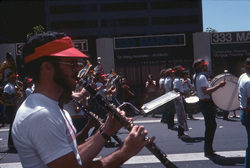
“From a friendship established that weekend, the three of were invited to spend the night out in the mountains near Los Gatos. It was so beautiful and quiet there: I could have stayed a week.” The parade is something I think about for weeks and months to come. It is the only one, as it turns out, that I have ever marched in.
Now
. . . means. But now . . . especially as San Francisco gears up for yet another fabulous (my second fabulous) parade . . . what does pride mean for us today?
The other day I viewed a documentary, Beyond Gay: the Politics of Pride (2009), about recent worldwide observances of Gay Pride Week (available now on AT&T U-verse). The narrator, Ken Coolen, is coordinator for the Toronto parade, and he spends an entire year traveling around the world to document what is happening with pride in places like Russia. It brings tears to my eyes to see young gays in Moscow strategize by setting up a fake parade just so they can fool the police and have the actual observance in another part of the city—it lasts about three minutes. They break it up before the press and police have a chance to catch up with them. We in America may complain about not being able to get married and complain that partners who’ve lived together for many years cannot be on the same health plan. And these certainly are goals to work toward, but when I see the young Russians do what they must to stage a “parade,” I see that we’re all in this together—worldwide. It’s no longer a national issue. If it ever was. Perhaps the issue has always been larger. Discos? Gay beaches? They seem like small potatoes by comparison.
In the 1970s I thought the Mattachine Society of the 1950s was passé and that Gay Liberation was what it was all about, man. Today’s young gay men must now look at us with similar disdain. Finding a dude (or dudes) via Grindr (a phone app in which members use GPS to locate local meat) is so much cooler than picking someone up at a bar. The young still go to bars, but I understand they don’t necessarily pick up anyone there. Pity. Even in a dark bar, I think you can get a better idea of what someone is like than by checking out his stats on your phone. The phone simply serves as a screening (oops, a pun) device that, I must say, could certainly be helpful. In the recent past, I've also watched a documentary about Rosie O’Donnell’s cruise for gay fathers and mothers and their families: All Aboard: Rosie’s Family Gay Cruise (2006). I am astounded. The film documents something that I assume can never be possible for gay men and women unless they’re raising children they’ve had with their former spouses in heterosexual relationships. (One can contact r family vacations for information about the latest cruises.) Other celebs like Neal Patrick Harris and his legal husband (in California anyway) are proud fathers of twins, each one sired by sperm from a different dad, birthed by a surrogate mother. Harris sits on a talk show and discusses his relationship with his husband and children in the same manner as a straight actor married to a woman. And the fact that I’m fascinated by this event is almost embarrassing.
It all makes our Gay Liberation of the 1970s look like child’s play. And perhaps that is what we are back then. Children. Children who’ve been denied their true identify. I know I myself go through two adolescent periods. One I experience as a pre-heterosexual boy (so I think), attending sock hops and dancing with girls to songs like “Do You Love Me?” “Be My Baby,” “He’s so Fine.” Fifteen years later I celebrate a second adolescence during which I can’t get enough of disco (or men): “The Hustle,” “That’s the Way I Like it,” “Last Dance,” “Boogie Oogie Oogie.” Perhaps at that time we are in the adolescence of our movement. We can’t get married. Our movement is too young. We can’t have children. They won’t allow us. And besides, who wants kids? How can you have fun 24/7 if children are hanging around your neck all the time?
A lot is happening now. Laws are changing. Society’s thinking is changing, and very quickly, it seems. Polls show increasing support for gay marriage, but like any progressive movement I believe it may take many more years for laws in every state to change, every country on the face of the earth. Am I sorry not to have had any children? No. It has never been on my radar. Nor Ken’s. We’ve had our careers and each other, and these seem to have sustained us. These, our families, and our friends. Our travels. We’re prepared to take care of one another until one of us dies. We’re prepared to be institutionalized in one of these lifecare places because we do not have heirs upon whom we can bestow the honor of overseeing the end of our lives. And we do it in a matter-of-fact manner without sadness or rancor. It is the way things are for us. Liberated, right through to the end.
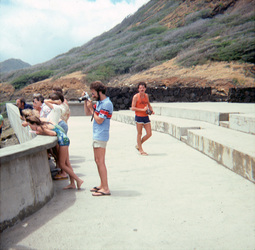
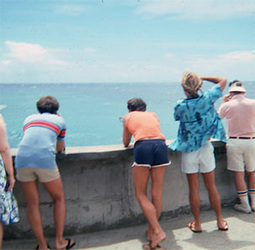
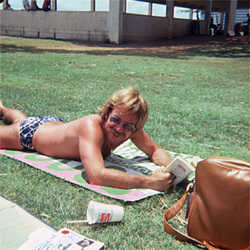
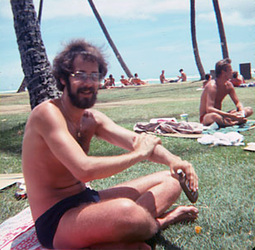
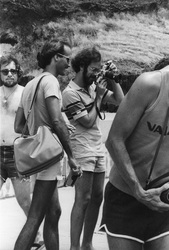
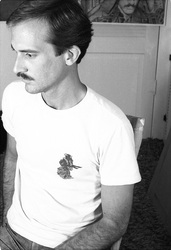

 RSS Feed
RSS Feed